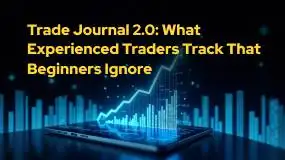简体中文
繁體中文
English
Pусский
日本語
ภาษาไทย
Tiếng Việt
Bahasa Indonesia
Español
हिन्दी
Filippiiniläinen
Français
Deutsch
Português
Türkçe
한국어
العربية
Forex Trading in Singapore: How Much Money Can You Make?
Abstract:Forex trading has surged in popularity in Singapore, driven by the city-state’s status as a leading financial hub and the recent emergence of Singapore dollar-pegged digital currencies.

Forex trading has surged in popularity in Singapore, driven by the city-states status as a leading financial hub and the recent emergence of Singapore‑dollar-pegged digital currencies. Moreover, the launch of licensed stablecoins such as XSGD, backed one-for-one by Singapore dollars, has provided an on-ramp for crypto‑native traders to participate in the FX market with minimal friction.
How Much Money Can You Make?
Earnings in forex depend on capital, risk management, leverage, and trading skill. Retail traders with modest starting capital (e.g., SGD 5,000–10,000) who aim for consistent, low-risk strategies might target monthly returns of 2–5 % after trading costs. Experienced professionals and proprietary trading firms, leveraging larger capital bases and sophisticated algorithms, often aim for higher annualized returns of 20–50 %, though with commensurate risks. Its crucial to remember that high leverage can amplify both profits and losses, making rigorous risk controls and realistic expectations essential.
Regulation and Market Environment in Singapore
- Regulatory Oversight: The Monetary Authority of Singapore (MAS) licenses and supervises all forex brokers under its Capital Markets Services (CMS) regime. Brokers must meet strict capital, conduct, and disclosure standards to protect clients.
- Stablecoin Framework: In response to global crypto developments, MAS has clarified regulations for stablecoins and piloted wholesale CBDC trials, fostering a regulated environment for tokenised Singapore dollars.
- Infrastructure: Singapore offers deep liquidity, robust banking rails, and cutting-edge trading platforms. Time‑zone overlap with major markets (Asia, Europe, US) ensures near round-the-clock trading.
- Tax Treatment: Forex gains are typically taxed under the Income Tax Act; retail traders should consult a tax advisor, as treatment can vary based on frequency and scale.
How to Trade Forex in Singapore
- Choose a Core Device/Platform
Select a reliable trading setup—desktop PC, laptop, or mobile device—with stable internet. Popular platforms include MetaTrader 4/5, cTrader, and proprietary web-based systems. Ensure your device meets system requirements and has uninterrupted connectivity during market hours.
- Choose the Most Suitable Forex Broker
- Regulation: Verify the broker holds a MAS Capital Markets Services licence.
- Safety: Look for brokers with segregated client accounts, negative balance protection, and participation in an investor compensation scheme.
- Research Tools: Prioritise brokers offering advanced charting, news feeds, economic calendars, and educational resources—essential for informed decision‑making.
- Opening Your Account
Complete the online application, providing a valid ID (e.g., NRIC or passport) and proof of address. Expect ID verification to take 1–2 business days. Some brokers may require a short interview or additional documentation for anti-money‑laundering checks.
- Fund Your Account
Deposit via bank transfer (FAST, PayNow), credit/debit card, or e-wallet. Be mindful of minimum deposit requirements (often SGD 100–500) and any funding fees. Once cleared, youre ready to place trades.
Key Considerations for Singapore Traders
- Leverage Limits: MAS caps retail leverage at 20:1 for major FX pairs, limiting risk exposure.
- Risk Management: Use stop‑loss orders, position sizing, and diversification to protect capital.
- Education & Community: Leverage local seminars, webinars, and trading forums—Singapore hosts numerous fintech and trading events year-round.
Forex trading in Singapore offers a potent combination of deep liquidity, stringent regulation, and innovative digital currency integration. By understanding the regulatory landscape, choosing a reputable MAS-regulated broker, and employing disciplined risk management, investors can confidently navigate the FX markets and pursue consistent returns.

Disclaimer:
The views in this article only represent the author's personal views, and do not constitute investment advice on this platform. This platform does not guarantee the accuracy, completeness and timeliness of the information in the article, and will not be liable for any loss caused by the use of or reliance on the information in the article.
Read more

Trade Journal 2.0: What Experienced Traders Track That Beginners Often Ignore
A Trading Journal is more than a basic record of trades. It’s a learning and improvement tool. Beginners often jot down only price and time. Experienced traders add deeper insight that helps them get better over time. Here's what they track:

Thailand-Cambodia War Pressures Thai Baht in Forex Market
The ongoing conflict between Thailand and Cambodia has put immense pressure on the Thai Baht, impacting the forex market and investor sentiment. Read on for more.

6 Red Flags to Notice Before Investing in Neuron Markets
Investment scams have been rising over the last 5–6 years. Therefore, you need to be alert in the forex market, as many scam brokers are active and waiting to exploit inexperienced investors and traders. Neuron Markets is one such broker that appears genuine and makes big promises but ends up swindling investors’ money. Checkout red Flags and stay Safe

Future of Forex in India: Growth or Global Domination?
Every Trader or Investor in India who wants to invest in the dynamic forex market must read this important article. It explores the future of the forex market in India and answers a common question: Forex market will rise or crash in India ? Checkout the article below.
WikiFX Broker
Latest News
Top Wall Street analysts recommend these dividend stocks for regular income
Stock futures rise as U.S.-EU trade deal kicks off a hectic week for markets: Live updates
Thailand-Cambodia War Pressures Thai Baht in Forex Market
Treasury yields tick lower as investors look ahead to Fed's interest rate decision
European stocks set to rise after the U.S. and EU strike trade agreement
Samsung Electronics signs $16.5 billion chip-supply contract; shares rise
Does XS.com Hold Leading Forex Regulatory Licenses?
Elon Musk confirms Tesla has signed a $16.5 billion chip contract with Samsung Electronics
Chile Bumps Up Copper Price Forecast and Flags Lagging Collahuasi Output
A breakthrough and a burden? What the U.S.-EU trade deal means for the auto sector
Currency Calculator


